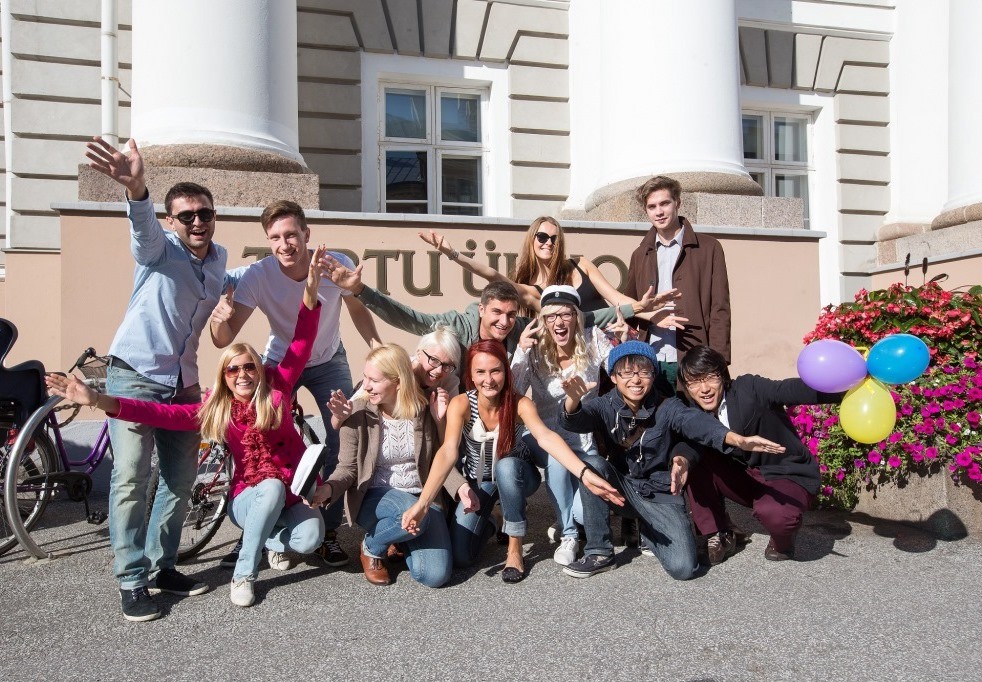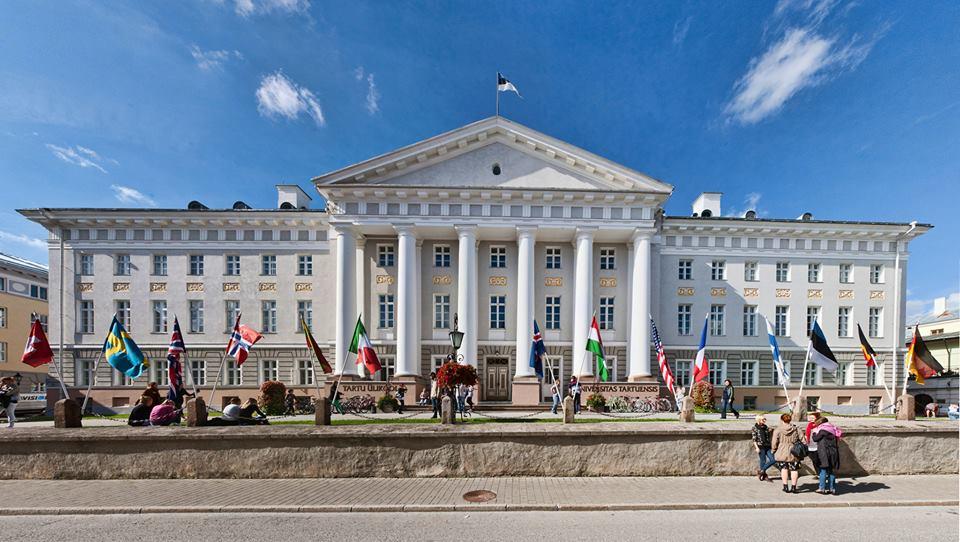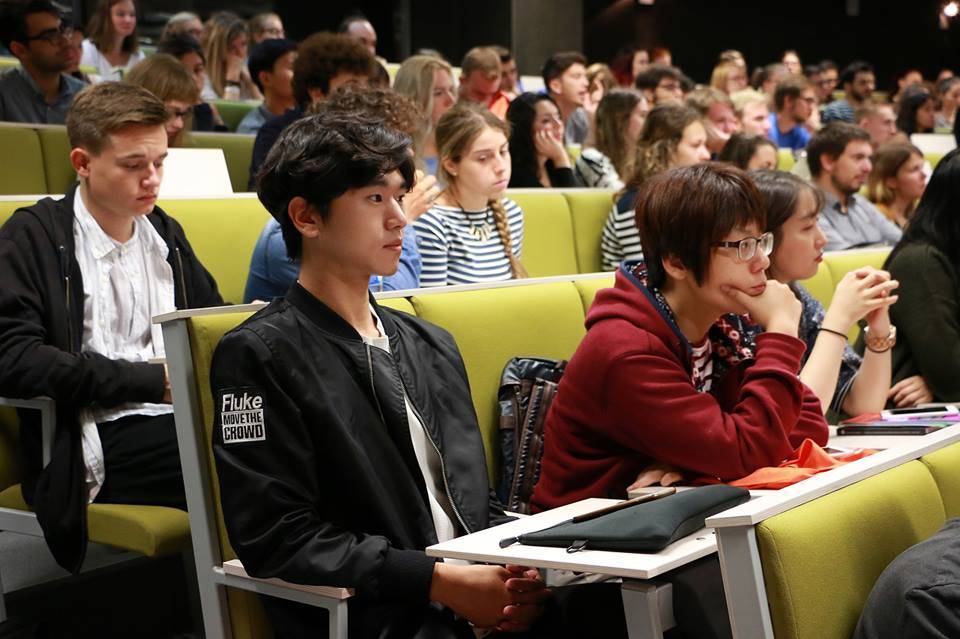An amendment to the law is maturing in the Estonian interior ministry that reverses the current principles of study mobility by pointing to the questionable risks and as a result of which the state will lose millions in tax revenue; on top of that, this could lead to the abandonment of the current model of free higher education, Marleen Allemann, a master of political science and a columnist, writes.
This article was originally published in Estonian in Müürileht.
There has been talk in the media about how students from third countries have found it difficult to come to Estonia due to the restrictions on movement imposed because of the spread of the coronavirus and for the protection of public health, and they may not get here by the beginning of the school year. However, less is reflected in the fact that under the auspices of COVID-19, the interior ministry has moved forward with a bill that would restrict the conditions for study mobility for third-country nationals on a much wider scale. At the same time, the draft contradicts the current approaches and the implementation of the planned changes may change the higher education landscape for all of us.
Last year, more than 5,500 foreign students studied in Estonia, and 62% of them came from third countries. The share of foreign students in the total student body has increased in recent years, but Estonia cannot be considered an overly popular destination country for study mobility. In the academic year 2016/17, the share of Estonian foreign students was at the EU average level (8%). The bill initiated by the interior ministry, more specifically the Aliens Act and the Amending the Study Allowances and Student Loans Act, aims to restrict the employment of foreigners studying in Estonia and granting long-term visas to foreign students’ families, end the need-based study allowance and tighten the rules regarding the post-studies stay in Estonia.

From a student to a terrorist
It seems that this is another right-wing initiative based on xenophobia, which causes people with a more open worldview to wonder and raises the question of what value space Estonia wants to belong to. On the other hand, it is interesting to look at what the ministry justifies the need for amending the law itself and how credible it is in a broader context.
There is a bold statement in the draft that it is difficult for foreigners who have completed their studies to integrate into our society, which, in turn, can lead to frustration and radicalisation.
Namely, the explanatory memorandum of the draft states that the proposed amendments will regulate the conditions for temporary stay in Estonia, commencement of studies and staying in Estonia after studies in order to prevent the misuse of residence permits and visas. Among other things, the draft contains a bold statement that it is difficult for foreigners who have completed their studies to integrate into our society, they often end up in lower-skilled jobs, which, in turn, can lead to frustration and radicalisation. At this point, I would like to ask ironically what research makes the process from “a student to a terrorist” so easy and whether exposure to the reality of the labour market and the resulting internal resentment are somehow specific to third-country nationals or should worry about any mobility and monitor the radicalisation of Estonian students…
The bill aims to limit the employment of non-EU students to 16 hours per week. It is argued that the measure should reduce the risk that international students will use their residence permit to study instead. It cannot be ruled out that such misuse may occur to a small extent, but the vice rector for studies at the University of Tartu, Aune Valk, has also said that the 16-hour limit is not reasonable, as the additional income received due to work is important for foreign students and in fact the university does not keep anyone on its list. If a foreign student does not complete the curriculum, they lose their temporary residence permit and are returned to their home country.

It is also telling that, in the past, the ministry of the interior has rather favoured the implementation of foreign students in the labour market. For example, in 2014–2020, it has been possible to apply for grants from the Asylum, Migration and Integration Fund for trainings and events aimed at introducing foreign labour market opportunities to postgraduate students from third countries. The guidelines for the application round emphasise that, “in solving the problem of qualified labour shortage, recruiting foreign students and applying them to the labour market is more effective than recruiting foreign labour, as foreign students become accustomed to the local environment during their studies”. In the light of the bill, it seems that it is no longer valid or another miracle cure has been found for the shortage of qualified labour, which has not been heard in the public opinion.
In addition to not employing potential workers, restricting the employment of foreign students from third countries also means a loss of tax revenue. Namely, a survey conducted by Statistics Estonia shows that in the academic year 2018/19, foreign students paid income and social tax of €8 million while working in Estonia. As mentioned earlier, we have almost two-thirds of all foreign students from abroad, so it can be assumed that the impact of third-country students on the economy is about the same proportion. This is a rather considerable amount of money, and the issue of unearned tax revenue has also been raised by the Estonian Chamber of Commerce and Industry during the processing of the bill, which does not consider it meaningful to limit the working hours of foreign students.
Solving a non-existent problem
Not only do they want to make it more difficult for students from third countries to work during their studies, the ministry of the interior wants to establish stricter requirements for staying in Estonia even after acquiring education. If a foreign student who has just graduated from school can apply for a short-term residence permit to work and does not have to pay the average salary in Estonia unlike other foreigners, this intermediate stage will disappear when the amendment enters into force and a foreign graduate should start earning at least the average salary. According to the ministry, this is how radicalisation is avoided.
The drafters also hope the introduction of the salary requirement will encourage foreigners who have obtained a degree and want to stay in Estonia to start working in their studied field and especially in areas where we lack a highly educated specialists. The explanatory memorandum clearly states that “a person with a higher education degree in computer science would then be able to work in information technology and communications companies rather than, for example, in a grocery store or catering establishment”. However, the 2019 survey of Statistics Estonia shows that the share of foreign students remaining to work in Estonia is the highest (for graduates in the academic year 2017/18) in the field of ICT and technology, and the average earned income of foreign ICT students is the highest. Thus, an amendment to the law would solve a problem that does not exist in reality.

As stated, in addition to restricting employment, the interior ministry wants to tighten the issuance of long-term visas to family members of foreign students from third countries. According to the explanatory memorandum to the draft, temporary family migration has led to an increase in the burden on public services and thus creates additional costs. As an example, the field of education is presented, where in 2019 local governments incurred an additional cost of at least €100,000 by training children who were in Estonia on the basis of a long-term visa. However, when compared with the tax revenue from the employment of foreign students, this is a remarkably small amount that should not justify the separation of family members.
A turnaround in talent policy
In 2016, the EU adopted the so-called Students and Researchers Directive, which concerns, inter alia, the studies of third-country nationals and sets as one of its objectives the “retention” of students from these countries after their studies. One of the sub-objectives of the “Strategy for the International Introduction of Estonian Higher Education 2015–2020” is to achieve a situation “where a foreign student studying in Estonia would contribute to the development of the Estonian economy and society in the long run and more than just internationalise our higher education landscape”.
As of 2018, we had exemplified almost all the incentives that have been applied in other EU countries to promote retention: third-country nationals who have graduated from an Estonian educational institution have simplified work and business permit procedures, lower wage requirements and unrestricted access to the labour market. Additional incentives have also been put in place, such as the exclusion of foreign students from third countries from the immigration quota. At the time, foreign students were allowed to stay in the country for up to 183 days after completing their studies, but this period was extended to nine months when the directive was transposed.
The reduction in tuition fees for foreign students studying in English-language programmes means that (at least partial) paid tuition will be on the agenda again in the underfunded higher education field.

Estonia, as a classic modern European country characterised by an aging population, a lack of (skilled) labour and the resulting unsustainability of welfare systems, cannot afford to waste human capital, so retention is a course of action that should become part of our talent policy like other successful EU countries. However, looking at the current intentions of the interior ministry, it seems that all policy measures in the respective field will be reversed and under the baton of the minister, they will stray countercurrently, without thinking about the long term.
Paid higher education lies ahead
It cannot be forgotten that the planned change in the law will not only affect those who want to come here to study abroad, but possibly also local future students. If at present the acquisition of higher education in full-time Estonian-language curricula is free of charge, then in a situation where the already underfunded field of higher education is deprived of tuition fees for foreign students studying in English-language curricula, warnings about higher-paying higher education no longer sound sci-fi.
In the case of the University of Tartu, it has been pointed out that not admitting first-year students from third countries would mean a hole in the university budget of about half a million; about a thousand foreign students studying at Tallinn University of Technology pay a total tuition fee of about €2.5 million. Obviously, these are orders of magnitude that our universities cannot afford to write in the same chimney, and a way must be found to make up for the shortcomings. Given the already difficult economic situation, it would be naive to seriously believe that the state will finally invest more resources in higher education in the coming years. However, without additional resources, there will probably be nothing left but to return (at least in part) to paid education, which would thus deplete part of the wallet of every young person who wants to study here.

The bill has received quite little public attention so far, but it has been opposed by many important stakeholders, such as the Estonian Student Union, the Archimedes Foundation and also the above-mentioned Chamber of Commerce and Industry. The ministry of education and research is also sceptical about several changes. Given all the contradictions with existing policies and approaches contained in the planned legislative changes, and the fact that the draft does not solve real problems, the reactions are, of course, not very surprising.
Doubts are also not reduced by the fact that, according to the interior ministry, the analyses and impact assessments prepared by the subordinate agencies of the ministry are not public. For those who care about good law-making and what is happening in the Estonian higher education landscape, it is worth keeping an eye on and perhaps peeking at rahvaalgatus.ee, where signatures are collected, so that foreign students and employees can study and work in Estonia.
An independent NGO, Estonishing Evenings, and the Federation of Estonian Student Unions will on 31 August take a deeper look at this issue, the current situation, its underlying reasons and potential for development.
The opinions in this article are those of the author. Cover: Prospective international students at Tallinn University in 2017. Photo by Tallinn University.

